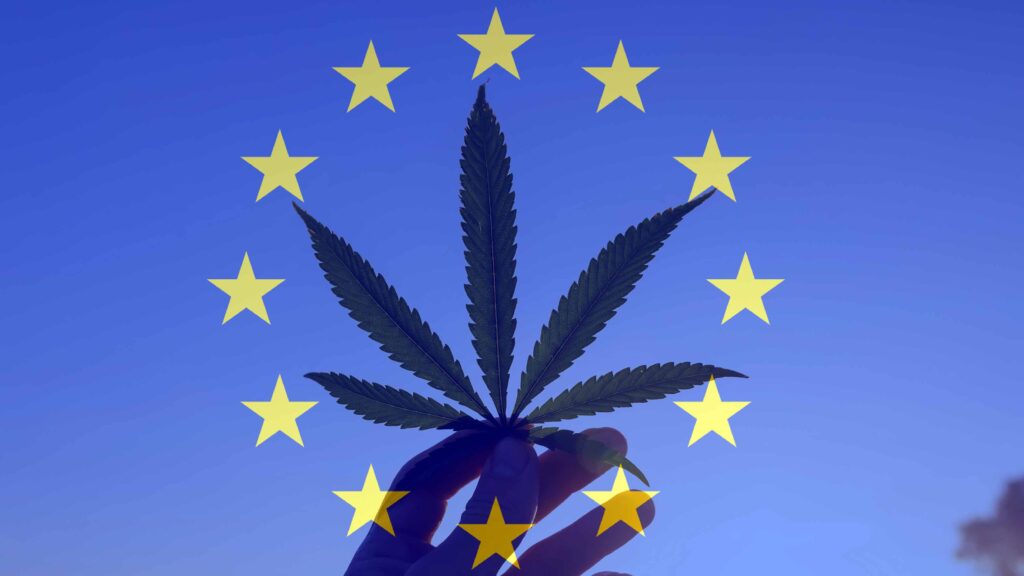
Barcelona’s approach to cannabis, characterized by its cannabis clubs and a relatively tolerant stance, stands out in the European context. This in-depth analysis compares the cannabis policies of Barcelona with those of other major European cities, shedding light on the complexities of legal frameworks, social perceptions, and the evolving landscape of cannabis regulation. By examining the nuances of each city’s approach, this guide aims to provide a clear picture of the current state and future directions of cannabis policy in Europe.
Understanding Cannabis Policies in Barcelona
Barcelona is often celebrated for its progressive cannabis policies, primarily manifested through its unique cannabis social clubs. These clubs operate in a legal gray area, allowing members to consume and share cannabis in a private, regulated environment. This section delves into the specifics of Barcelona’s cannabis laws, the operational framework of the cannabis clubs, and how these contribute to the city’s distinctive cannabis culture.
Cannabis Policies in Amsterdam
Amsterdam has long been considered a pioneer in cannabis tolerance, with its famous coffee shops drawing tourists worldwide. Unlike Barcelona’s club-based model, Amsterdam’s coffee shops are commercial establishments open to the public. This part compares the regulatory frameworks, highlighting differences in accessibility, legal protections for consumers, and the impact on local culture and tourism.
Cannabis Regulation in Prague
Prague’s approach to cannabis is marked by decriminalization for personal possession and use, setting it apart from both Barcelona and Amsterdam. This segment examines the Czech Republic’s cannabis policies, exploring the legal thresholds for possession, the cultural acceptance of cannabis, and the implications for both residents and visitors in Prague.
Cannabis Laws in Berlin
Berlin’s cannabis scene is reflective of Germany’s complex legal stance, which includes medicinal cannabis legalization and ongoing debates around recreational use. This section explores Berlin’s cannabis policies in comparison to Barcelona’s, focusing on legal access, social clubs, and the shifting attitudes towards full legalization.
Cannabis Policies in Lisbon
Lisbon represents a unique case of decriminalization within Europe, with Portugal’s groundbreaking drug policy reform in 2001. This part contrasts Lisbon’s approach to drug decriminalization, including cannabis, with Barcelona’s model, discussing the impacts on public health, drug-related crime, and social attitudes towards cannabis use.
Comparative Analysis of Legal Frameworks
This section provides a comparative analysis of the legal frameworks governing cannabis across the selected European cities. It highlights the diversity of approaches, from decriminalization to tolerance and the social club model, offering insights into how different legal landscapes shape the accessibility and regulation of cannabis.
Cultural Attitudes and Social Perceptions
Cultural attitudes towards cannabis vary significantly across Europe, influenced by historical, social, and legal factors. This segment explores how cultural perceptions in Barcelona and other European cities affect cannabis policies, public consumption, and the integration of cannabis into daily life.
The Future of Cannabis Policies in Europe
As attitudes towards cannabis continue to evolve, so too do the policies governing its use. This section speculates on the future directions of cannabis regulation in Barcelona and other European cities, considering potential shifts towards legalization, increased regulation, and the role of public opinion in shaping policy.
FAQ
How do cannabis policies in Barcelona compare to those in Amsterdam?
Barcelona’s cannabis model is based on private social clubs where membership is required for access, emphasizing community and collective cultivation. Amsterdam, conversely, operates through public coffee shops where cannabis is sold and consumed openly, though with regulatory limitations.
Is cannabis decriminalized in Prague?
Yes, Prague has decriminalized the possession and use of cannabis for personal use, with specific limits on the amount considered for personal possession without legal repercussions.
Can tourists join cannabis clubs in Barcelona?
While some cannabis clubs in Barcelona do accept tourists, the process involves sponsorship by an existing member and adherence to the club’s specific membership policies, which can vary widely. Join a Barcelona Club
What makes Lisbon's drug policy unique in Europe?
Lisbon reflects Portugal’s broader approach to drug decriminalization, focusing on public health rather than criminal penalties for drug possession, including cannabis, which is unique within Europe.
What are the future trends for cannabis policies in these cities?
Trends indicate a gradual shift towards more liberal policies, with increasing advocacy for legalization and regulation, especially for medicinal use. Public opinion, coupled with ongoing research into cannabis’s benefits and risks, is likely to influence future legislative changes.
Conclusion
The comparison of cannabis policies across Barcelona and other European cities reveals a diverse landscape of regulation, cultural acceptance, and legal experimentation. Each city’s approach reflects its unique socio-political context, highlighting the complexities of balancing public health, legal enforcement, and cultural tolerance. As Europe continues to grapple with the question of how best to regulate cannabis, these cities remain at the forefront of an evolving debate, offering valuable insights into the potential paths forward for cannabis policy.
